MP Calls for Resignation of National COVID-19 Crisis Management Team
ZAGREB, 27 Oct 2021 - MP Renata Sabljar-Dračevac (Social Democrats) said on Wednesday there was no longer any trust in the national COVID-19 crisis management team and called for its resignation.
Due to the high COVID-19 mortality rate and extreme irresponsibility, we call for the resignation of the national COVID-19 crisis management team and the appointment of serious experts who would restore the trust of citizens with consistency and expertise, achieving thus a better vaccination rate, the MP said.
According to unofficial data, Croatia has 4,400 new cases today, there have been 30 deaths over the past 48 hours, and the number of active cases is nearly 18,000 yesterday, Sabljar-Dračevac said.
For all you need to know about coronavirus specific to Croatia, make sure to bookmark our dedicated COVID-19 section and select your preferred language.
For more, check out our politics section.
PM Says Minimum Wage to Increase by HRK 350 as of January
ZAGREB, 27 Oct 2021 - Prime Minister Andrej Plenković announced on Wednesday in the parliament that the minimum net wage would increase by HRK 350 or 10.3% as of January, from HRK 3,400 to HRK 3,750, that is to €500.
The government would pass the decision on Thursday, the prime minister said, submitting to the parliament the annual report on the work of the government.
He underscored that the government was raising the minimum wage for the first time to more than 50% of the average net salary and to over 60% of the median net salary, which would impact 51,000 workers.
Five years ago, he recalled, the minimum salary was 38% of the average salary.
The prime minister also said that the number of employed persons was higher by 51,000 than last year and that it had reached 1.6 million employed persons, which was to date the highest number in August after the record 2008 and the second-highest since independence.
(€1 = HRK 7.5)
The unemployment rate, which stood at 13.3% five years ago, declined in August to 7.3%, he said, adding that this was the result of active employment policy measures, in which about HRK 5.5 billion had been invested over five years, encompassing 165,000 persons.
For more, check out our politics section.
Zagrebačka Banka Makes HRK 1.07bn in Profit After Taxes
ZAGREB, 27 Oct 2021 - In the first nine months of 2021, Zagrebačka Banka generated HRK 1.07 billion in profit after taxes, up 22% on the year, according to an unconsolidated financial report released on Wednesday.
Operating revenue was HRK 2.8 billion, down 1.8% on the year, while operating costs were HRK 1.2 billion, up by HRK 9 million on the year. The cost-revenue ratio was 42.3%.
The bank's assets totaled HRK 131.3 billion, up 5.5% on the year, while net lending totalled HRK 68.6 billion, up by HRK 1.1 billion as a result of higher exposure to the government.
Client deposits were the primary source of financing and totalled HRK 106.9 billion, including a HRK 8.7 billion increase resulting mainly from household and corporate deposits.
Deposits by credit institutions were HRK 2.6 billion, down by HRK 3.1 billion.
According to a consolidated financial report for the first nine months of 2021, the Zagrebačka Banka Group generated HRK 1.28 billion in profit after taxes, up 16.2% on the year, the main contributors being Zagrebačka Banka, UniCredit Bank Mostar and UniCredit Leasing Croatia.
The group's operating revenue was HRK 3.6 billion, down 3.9% on the year, while operating costs were HRK 1.7 billion, down by HRK 4 million.
(€1 = HRK 7.5)
Faculty of Law Opposes Governments' Plan to Reform Social Welfare System (Večernji List)
ZAGREB, 27 Oct 2021 - The proposal to replace social welfare centers with a central institute prompted a reaction from university professors, who say yes to reform, but a professional one, not one imposed by the minister, Večernji List daily reported on Wednesday.
One of the key reforms announced by the Minister of Labour, Pension System, Family and Social Policy, Josip Aladrović, in the presentation of an action plan for the improvement of social welfare and the announcement of a social welfare bill was the replacement of social welfare centers with a central social welfare institute and with branch offices, the Faculty of Law in Zagreb said.
In a letter signed by the head of Social Work Study Centre, Associate Professor Gordana Berc, the head of the Department of Labour Law and Social Security Law, Professor Željko Potočnjak, and the head of the Department of Administrative Science, Professor Gordana Marčetić, the Faculty of Law stated its opposition to the government's plan.
We consider that the proposal, which is opposed by all professional associations, will not contribute to a more efficient structure and operation of the system, said the professors at the Faculty of Law, adding that the proposal was not put forward by representatives of workers in social welfare or by working groups that worked on the new bill, but that it was being imposed by the minister and the ministry.
They underscored that the system was already highly centralized and that the proposal deprived local and regional authorities of the possibility of impacting the social welfare system, even though they had obligations to finance certain rights.
Further centralization of the system, the Faculty pointed out, is not in accordance with the Constitution, which states that local government units perform tasks at the local level which directly meet the needs of citizens.
Under the new bill on social welfare, the Social Welfare Institute has no obligations towards local government units in terms of submitting reports, nor are local and regional authorities represented in the steering council of the new institute. The change in the structure is clearly modeled on the Croatian Pension Insurance Institute, but social welfare pension insurance systems operate on different models, the Faculty said.
The justification for the reform is the inefficiency of the current system and its uneven performance. However, it is not clearly stated what kind of uneven performance occurred or what caused it, Večernji List reported.
For more, check out our politics section.
MPs to Debate 2021 Budget Revision Next Week, Says Finance Minister
ZAGREB, 27 Oct 2021 - Parliament is expected to debate the draft 2021 budget revision next Wednesday and the draft 2022 budget early in December, Finance Minister Zdravko Marić said on Wednesday.
The idea is to debate and vote on the revised budget as soon as possible so that all reallocations and payments can be made by the end of the year, he told reporters.
Asked to comment on the fact that the health sector's debt to drug wholesalers was growing again, Marić said it was growing even though HRK 9 billion was set aside for it in the budget and that one should add to that the HRK 23 billion budget of the Croatian Health Insurance Fund.
That, he said, points to the need to reform health expenditures by spending taxpayers' money better and more effectively, while keeping the quality of healthcare.
Asked if there was money for a new round of payments to businesses affected by the pandemic, Marić said the draft 2022 budget did not envisage this year's level of job-keeping measures. He added, however, that the draft 2020 budget did not envisage them either, yet they were adopted to protect people's health and keep jobs.
For more, check out our politics section.
Zagreb Months Late in Paying Schools' Bills, Says Daily
ZAGREB, 27 Oct 2021 - Zagreb schools are in serious financial problems because the city has been late for months with the payments it owes them as their founder, Jutarnji List daily said on Wednesday.
Due to the budget deficit encountered upon coming to power, the new city administration is evidently at quite a tight stop, and schools are affected, the paper said.
Headmasters have confirmed that the last payment they received from the city for energy was in August to pay the bills for March, for food in September to pay the bills for April, and only this week to cover the material costs of the last month of the previous school year.
Due to the months-long lateness in the payments, school headmasters fear shut-offs and enforcement procedures. For now, they are using school funds to pay the bills, they say, adding that payments were late in the past as well, but never this late.
"We don't have money even for emergencies... We understand that the city is in a difficult financial situation, but we have a hard time understanding that there is no information on when we will get the money," Suzana Hitrec, president of the Secondary School Headmasters Association, was quoted as saying.
She said secondary school headmasters had met with city officials but were not informed when the payments would become regular.
If some schools have money in their accounts, those are mainly funds for European projects which cannot be used to pay for toilet or printing paper, Hitrec said.
According to estimates, the city should give schools about HRK 10 million a month to pay utility bills as well as for material costs and food, Jutarnji List said.
For more, follow our politics section.
Milanović Meets with Dodik
ZAGREB, 27 Oct 2021 - Croatian President Zoran Milanović on Tuesday held talks with Milorad Dodik, the representative of the Serb people in Bosnia and Herzegovina, the president's office said in a press release.
The meeting with the Serb member of the tripartite BiH Presidency was part of Milanović's activities that are aimed at achieving the stability and functioning of BiH as well as the legitimate representation of all three constituent peoples in line with the Dayton peace agreement, the press release said.
For that purpose, the president already met with Bakir Izetbegović, the representative of the Bosniak people, and with Dragan Čović, the representative of the Croat people, it added.
For more, follow our politics section.
Croatia's Coronavirus Update: 4,571 New Cases, 26 Deaths
ZAGREB, 27 Oct 2021 - In the last 24 hours, Croatia has conducted 13,083 coronavirus tests, and 35% of them, that is 4,571, have turned out to be positive, the national COVID-19 crisis management team reported on Wednesday.
The COVID-related death toll has increased by 26 to 9,116.
Currently, there are 20,645 active cases, and of them 1,207 are receiving hospital treatment, including 153 patients placed on ventilators.
Since the first registered case of the infection with coronavirus in Croatia on 25 February 2020, a total of 3,061,318 tests have been conducted showing that 453,936 people have contracted the virus. Of them, 423,175 have recovered from the disease so far, including 1,844 in the last 24 hours.
Croatia has applied over 3.57 million vaccine doses against this disease under its vaccine rollout plan, and to date, 52.70% of adult citizens have fully been vaccinated.
For all you need to know about coronavirus specific to Croatia, make sure to bookmark our dedicated COVID-19 section and select your preferred language.
LNG Croatia Seafarers Required Vaccination to Work from November 1
October 27, 2021 - LNG Croatia seafarers at the LNG terminal in Omišalj will need to be vaccinated with at least the first dose by November 1 this year.
Index.hr reports that LNG Croatia seafarers on board the floating unit for liquefied natural gas (FSRU) at the LNG terminal in Omišalj will have to be vaccinated if they want to continue working at the terminal, announced the Norwegian company Golar, which employs the seafarers at the LNG terminal.
Hrvoje Krhen, director of LNG Croatia, which operates the terminal, confirmed the news received from Golar.
"They must be vaccinated with the first dose of vaccine no later than November 1 this year, and the second no later than January 1 next year. Otherwise, the company will no longer guarantee them employment," Krhen said.
Only seafarers who have recovered from Covid-19 in the last six months and have a valid recovery certificate will be exempted from this obligation.
"Until now, no one without a Covid-certificate could enter the terminal, including the ship. Thus, at each boarding, seafarers also had to have a certificate that they had been vaccinated, tested negative, or displayed a certificate that they had recovered from Covid-19. This is a serious business in which we cannot risk the crew becoming infected and the supply of the natural gas market in question," Krhen told Novi list.
Mario Zorović, president of the Croatian Association of Seafarers' Employment Brokers, whose agency employs part of the ship's crew, says most large shipping companies are expected to introduce mandatory vaccination against Covid-19 soon, without which boarding will not be possible.
"So far, several large companies, such as Stena and Hoegh LNG, have introduced vaccination obligations for all their seafarers. I must point out that most seafarers have accepted the obligation to vaccinate, and a good part of them have already been vaccinated. For example, out of 200 seafarers we employ on Hoegh LNG ships, only one refused to be vaccinated," Zorović said.
There are about 17,000 Croatian seafarers in international navigation, of which as many as 77 percent are officers on ships. Just over 50 percent of them have been vaccinated against Covid-19. Still, the Association expects that number to increase significantly now that companies have started introducing mandatory vaccination as a condition for obtaining or retaining a job.
The Secretary-General of the Croatian Seafarers' Union, Neven Melvan, points out that the introduction of vaccination obligations should not be in the domain of shipping companies but should be decided at the level of the World Maritime Organization (IMO).
For more on business in Croatia, follow TCN's dedicated page.
Dubrovnik Digital Nomads-in-Residence: Meet the Creators, Download Case Study
October 27, 2021 - The award-winning Dubrovink Digital Nomads-in-Residence (DNIR) program has put the Pearl of the Adriatic firmly on the remote work map. Download the case study, and meet the team who conceived and delivered a program that was the first of its kind in the world.
Back in July 2020, the city and tourist board of Dubrovnik agreed to a proposal from Total Croatia News and Saltwater Nomads to put it on the map for digital nomads. Following Croatia’s first Digital Nomads conference in October 2020, the city was presented with a program for 2021 that would help attract digital nomads to visit, and stay, in the city. Tanja Polegubic, the founder of Saltwater, proposed a unique event - a digital nomad in residence program. A competition to select 10 nomads from around the world, who would then live in Dubrovnik for a month and collaborate on a plan to make the city more attractive to the digital nomad community. The program was promoted through Total Croatia News and drew global interest. The event came to life in April 2021 with the digital nomads in residence arriving in the city. Over four weeks, the Saltwater program team facilitated a series of workshops involving the visiting nomads, the city, the tourist board, and the local community.
The outcome was a set of recommendations and a multi-year roadmap that the city of Dubrovnik has already started implementing.
It was, quite simply, the best project I have been involved in during my 18 years in Croatia. So much energy, so much creativity, the first of its kind in the world.
We have featured the 10 fabulous humans who were our nomads in residence extensively. Now meet the team who conceived, designed, and delivered the project.
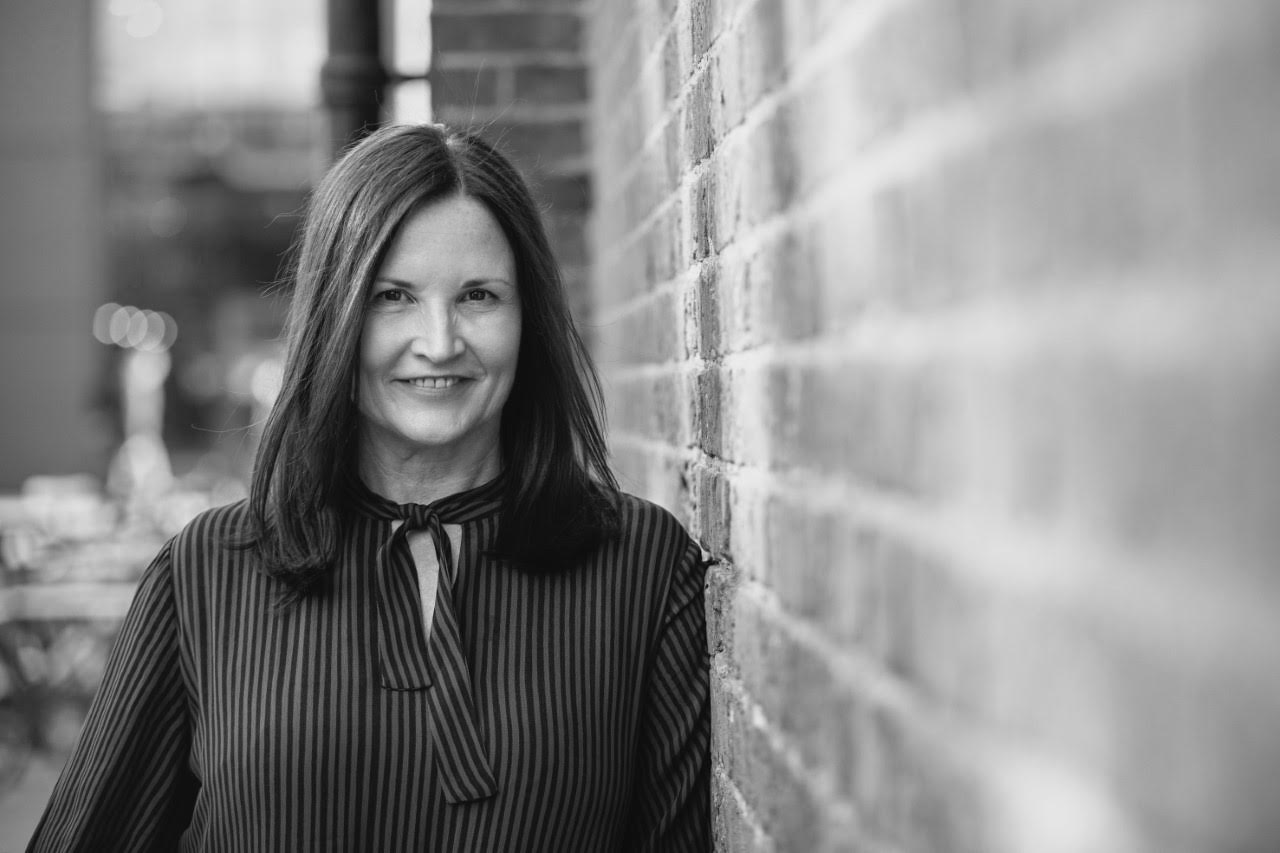
Jenni Carbins, Australia/UK, founded specialist placemaking agency Mark London in 2013, to focus on sustainable urban regeneration by delivering innovative social and commercial solutions to showcase the best version of a place’s identity. Site-specific activation may include meanwhile uses, culture, art & design, leisure, community & education, science, tech & innovation, sport, health & wellbeing and sustainability.
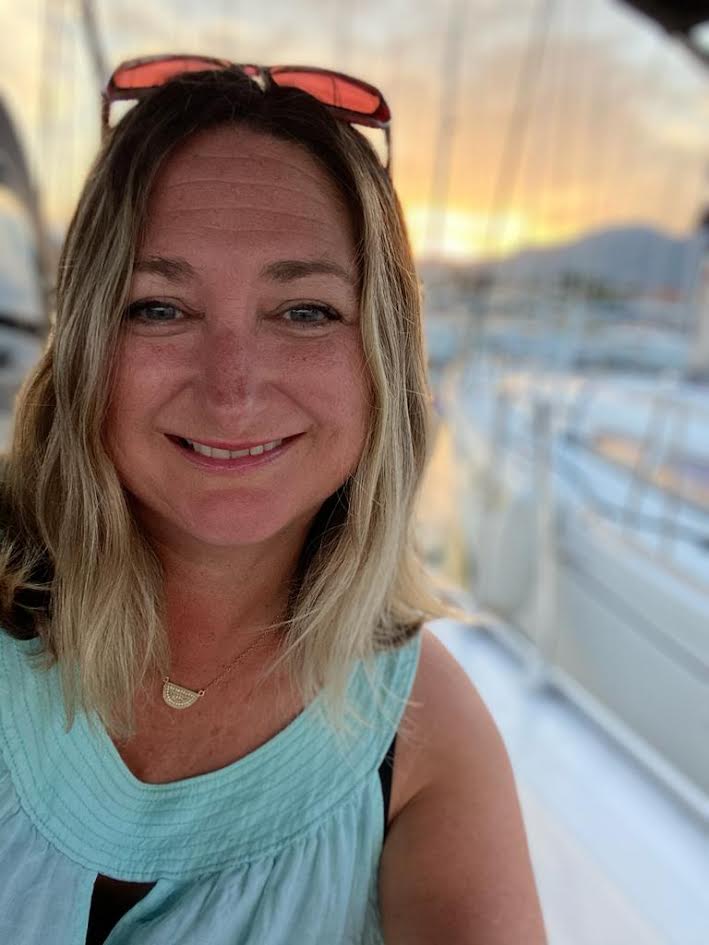
Erin Maxwell, New Zealand/Australia, has 16 years of global leadership experience in continuous improvement, solving problems through process and technology, building a highly successful process improvement team in one of the world’s most iconic consumer tech companies. Now based in Croatia, Erin is working remotely on local and global initiatives, and also learning to sail - making the most of the stunning Croatia coastline.
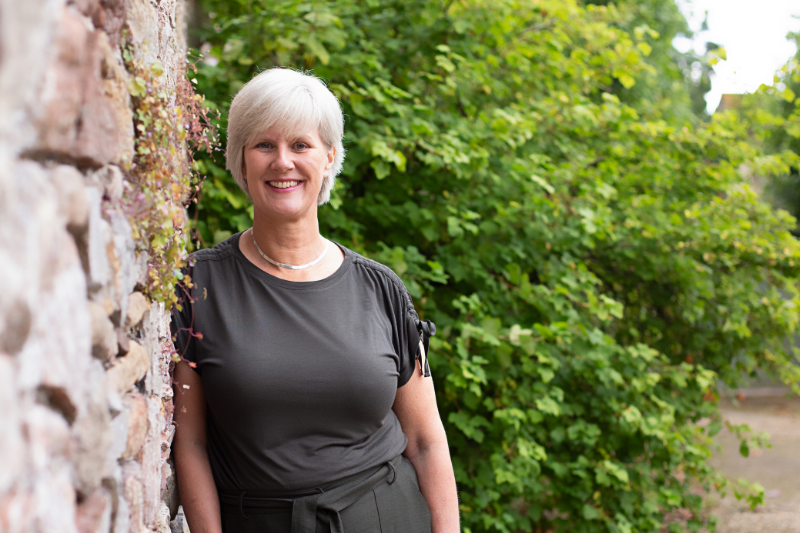
Anna Traylor, UK, founder of Twine, helps fantastic people do wonderful things (and makes a difference as she goes). Anna is all about making connections and helping create something really special for a brand or business. It’s all bundled up in the business name.
1. The Dubrovnik Digital Nomads-in-Residence program was the first of its kind in the world, with the weekly design-thinking workshops one of its core elements. How did the concept come about?
Erin: When Tanja told me about the program and the workshops, I asked her if she had considered using some design thinking principles. In particular, we talked about the human-centric approach to design thinking. How it can really pull together a group of people by harnessing individual ideas and experiences and then working together on solutions. It seemed like a good fit. Tanja had already engaged Anna Traylor to design the workshop experience, so we got on a call together and compared notes. Anna had come from a service design background and was already thinking in the same direction, so we quickly aligned on a design thinking approach.
Anna: When I was approached by Tanja Polegubić, founder of Saltwater and co-founder of the Digital Nomad Association (DNA) Croatia, she already had a brilliant concept - Dubrovnik 365 - making Dubrovnik attractive and liveable year-round for digital nomads and locals alike.
Initially, Tanja asked me to facilitate the weekly workshops with the digital nomads in one stream, and another separate programme would run for local businesses and officials. But, reflecting back with Tanja, I spotted other ways to make the program even better.
I noticed the nomad workshops didn’t yet take into account the ideas of, or engagement with, the local community. I knew local buy-in would be essential to the success of the program. So, I helped Tanja to step back and rethink, and introduced her to the concept of design thinking which uses co-creation as one of its key methods. By now, Erin Maxwell had joined the pop-up management team. Erin was very familiar with design thinking, having worked with the concept in the past, and together we created a new co-creation model for the workshops — which would include everyone’s needs and challenges as we searched for ways to make Dubrovnik a true year-round destination.
2. Tell us about the process of designing such a project - what were the biggest challenges?
Jenni: The biggest challenge was that the concept was the first of its kind. However, this was readily overcome by Tanja’s insightful selection of team members and advisors. Within the core team, Tanja has a deep understanding of remote working combined with all-important local knowledge, Erin is a design thinking specialist, Anna brought facilitation and community, while my contribution was place-based - what makes a great sustainable city.
Secondly, filtering all the amazing ideas and solutions. There were enough to build another city.
Erin: Four full days of workshops is a lot of time to ask of people, so we wanted it to be tight. We needed to plan the sessions in enough detail to ensure we stayed on track and achieved our outcomes, but still allow fluidity to evolve the process as we went. A lot of time went into this aspect of planning and I think it really paid off. Also, due to Covid-19, there were a lot of “what-ifs" to anticipate. What if people couldn’t be in the room? What if we were limited on the number of participants in the workshop space? These things were changing week to week in the lead-up to the event, and we had to be ready for any eventuality.
Anna: Tanja had also identified placemaking as a key component of the program and Jenni joined the pop-up management team. I started by designing a three-day service design program, using design thinking, customer journey mapping, ideation, prototyping, and storytelling to work with the nomads, businesses, and local community. Jenni brought her placemaking expertise into the program and together we devised the content for the four weeks.
We knew the biggest challenge would be creating enough space and focus for the nomads to return each week and pick up the previous week's work because they were working all the while on their own businesses. Tanja had built in the group bonding elements with the fabulous weekend trips to explore the wider area. And this rapid building of a positive group dynamic was essential to maintaining the energy for the intellectual work on the Fridays. Erin's role in creating a consistent level of energy and focus cannot be underestimated! She was fantastic - calm under pressure and with exactly the right tone to keep things moving.
3. The workshops were run physically in Dubrovnik, but with some facilitators participating remotely. How challenging was that?
Erin: This was a real combination of technology and teamwork. Anna was remote, so Jenni and I did the in-person facilitation in the room. Anna did a lot of the structure for the workshops, setting the vision and objectives for each session. We collaborated strongly on the planning to ensure we knew how the sessions would run, in alignment with that vision. We also did what we could to include Anna in the room - we had a roaming camera / tripod that we called “Virtual Anna”, so we could bring her into any breakout discussions.
Anna: I was the facilitator contributing remotely! I had always intended to come in person, but the spike in Covid in the UK and personal circumstances meant I wasn't able to join the team at Lazareti. Erin had planned to be co-facilitator originally and when we knew I couldn't make it in person, she stepped in to be the facilitator in the room. And we made really imaginative hybrid arrangements for me to contribute from my location in the UK.
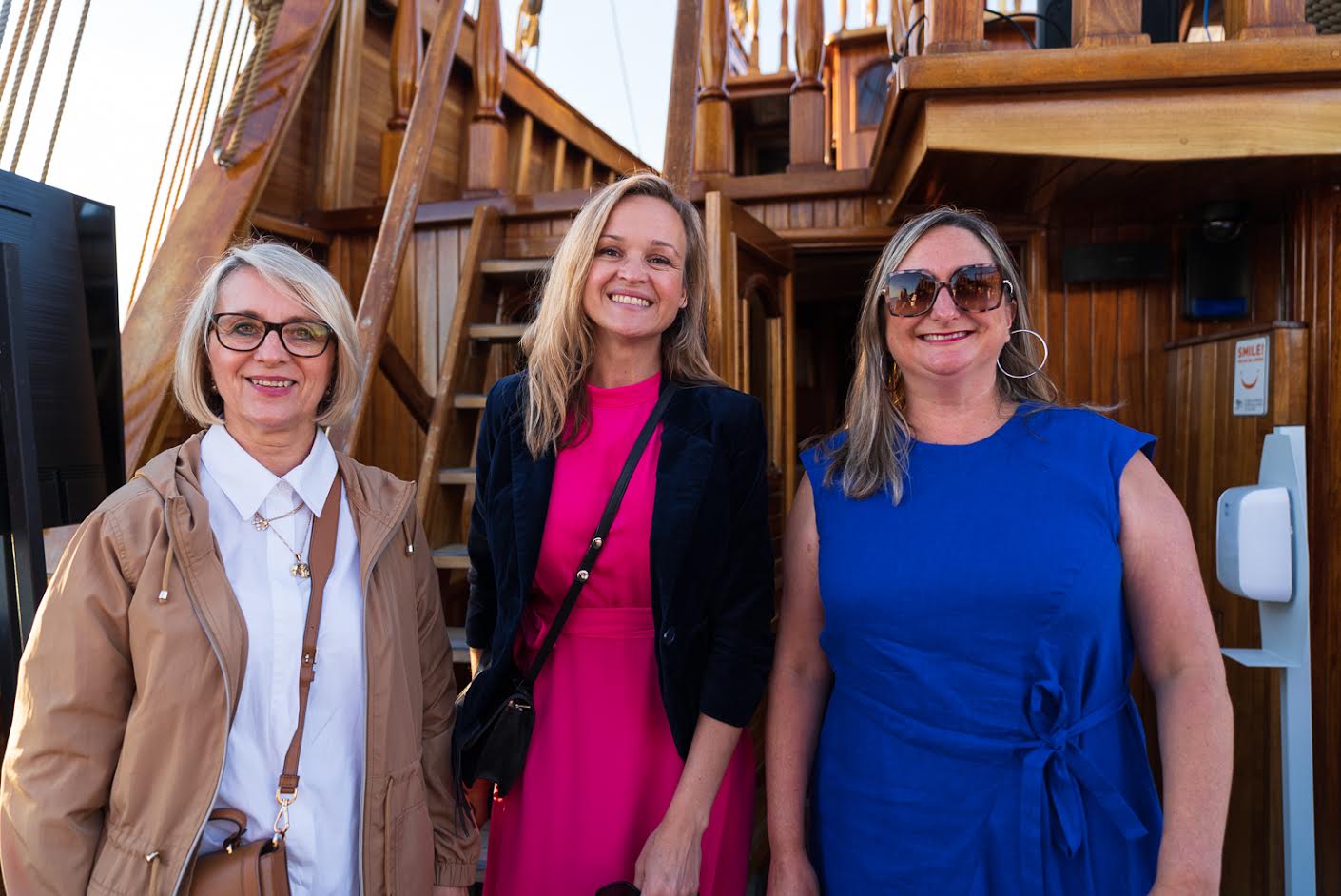
(With key local partner, Deputy Mayor of Dubrovnik, Jelka Tepsic)
4. The energy and co-creation of the group who participated - from the 10 DNIRs to the city, tourist board and community members - was incredibly positive. Did you expect such cohesion? Tell us about the experience of running the project.
Jenni: Fundamental to the cohesion was that all the players were focused on the same goal - sustainable tourism and development for Dubrovnik. How we got to solutions was a fun ride of community-based research, brainstorming and enormous respect for each and every viewpoint in the room.
Erin: The design of the workshops intentionally fostered a “co-creation” approach - ensuring everyone was heard, and were part of the ideation and solutioning. But to be honest, it was better than I could have hoped for. We spent so long planning, then we got there and met all these amazing people - and they were just like “BOOM!”. The people in the room were so engaging, honest and motivated. Tanja and the extended Saltwater team did such a great job of crafting the group. It was a buzz for me to be a part of it. And it didn’t stop when the event finished… Many of the people involved are still connected now - sharing ideas, opportunities and meeting up in person in different countries. Long-lasting connections and friendships.
Anna: I expected the outcomes to be positive because Tanja and we in the pop-up management team had worked extremely hard to create that outcome. Although this group of people hadn't done precisely this type of program before, all the elements were in place to create such an outcome.
The experience of running the project was fantastic. It was a highlight of my 2021 and I am delighted that the results have been enacted by the City such as coworking spaces and the Dubrovnik card, and other great outcomes, such as being recognised by Conventa.
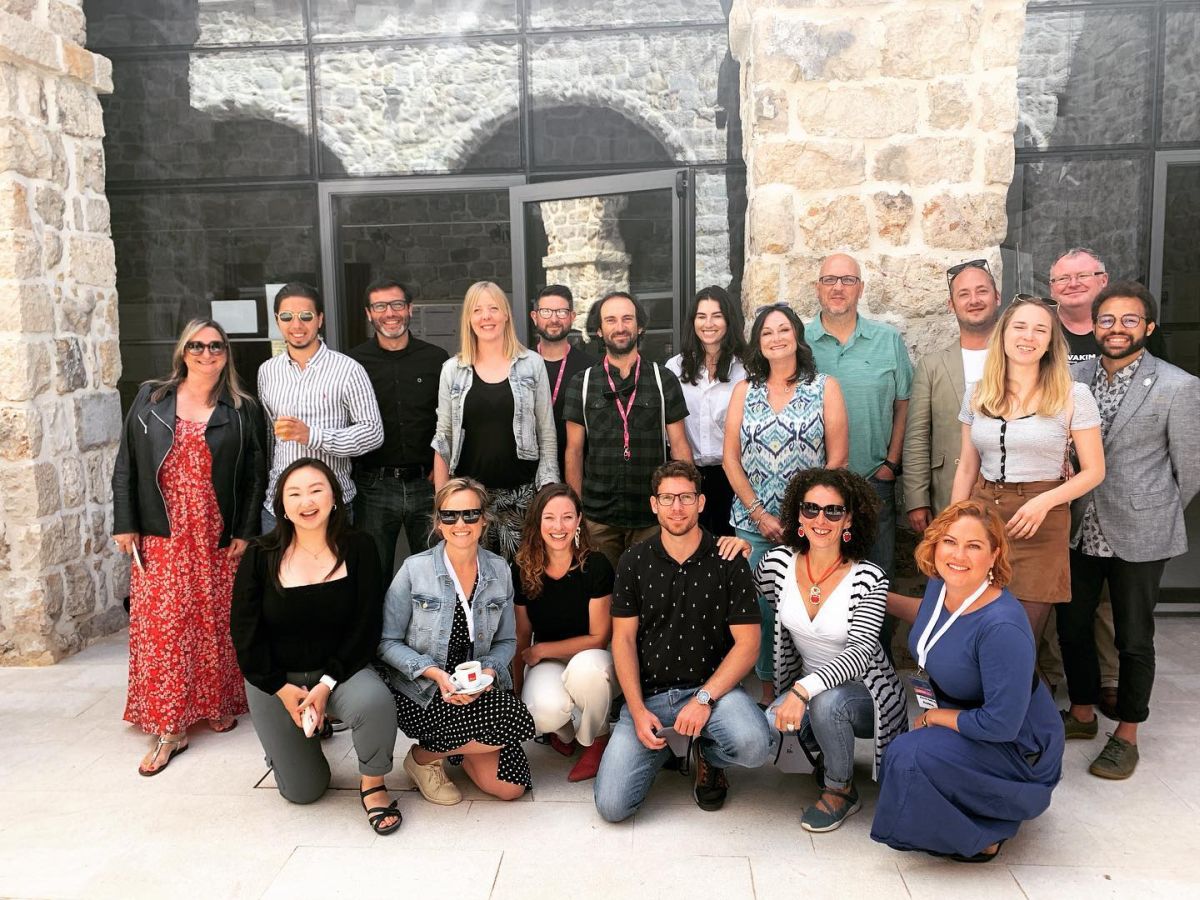
5. Sum up the key findings of the roadmap and recommendations which emerged from this very productive month.
Jenni: As a snapshot, the aim and the achievement was to generate both quick results as well as solutions for longer-term growth and sustainability. So the recommendations were categorised:
1. ’Now’ - the low hanging fruit; easy wins, readily able to be implemented by individuals (eg. opening a coworking space)
2. ’Next’ - achievable with some collaboration, planning, communication and minor investment (eg. hosting an annual conference)
3. Future’ - larger game-changing projects that require policy changes and/or larger investment.
Erin: The team came up with so many great ideas. Some were real lightbulb moments, others were more obvious but were confirmed as being critical. One of the key themes was about community building - there was a whole section of the roadmap around enabling digital nomads to connect better with each other and also to the local community.Another critical point was about how much there was to see and do outside of the Dubrovnik city walls, and recommendations for how to attract nomads to explore and stay in those areas.
6. What worked better than expected, and anything which was not so successful?
Erin: It really was a great experience. It was an intense few days, so it was important that we had some lighter exercises, getting people up, outside, mini competitions etc. Those activities worked well and I would do more of them in future events. Having a strong team of facilitators between Anna, Jenni and myself worked really well. One surprising element for me was finding someone in the extended group who had experience in design thinking, so he joined our core facilitation team partway through. So great!! Thinking forward to future opportunities, one challenge I foresee is how you would (or should?) offer quality remote participation to these types of sessions. The work we do is by nature very physical, tactile - e.g. walking around research walls, physically grouping ideas etc. Also, the people interactions that happen in the room are so important - creating connections, trust, empathy - this is harder to replicate online. This is something I’d like to put some more thought into to see what’s possible.

(Photo Zoltan Nagy)
7. If you were to implement this concept for a future destination, what changes would you make?
Jenni: Potentially only more lead time, to allow for expanded immersion, research and understanding within each new place.
Erin: To be honest, I’m not sure I would change a whole lot in the overall approach. I’d probably suggest some tweaks in some of the workshop activities, but they would be minor things.
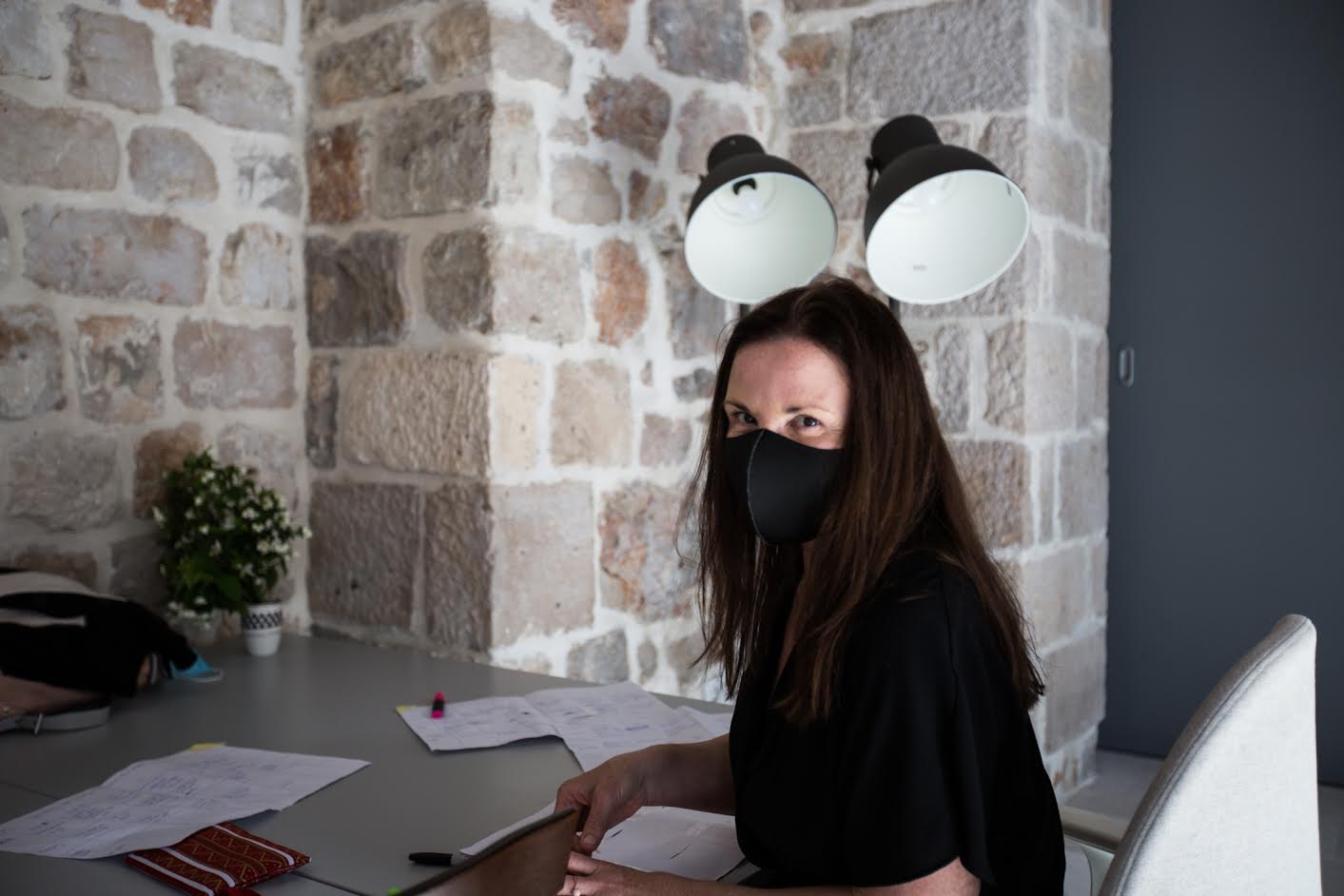
8. And a final comment on Dubrovnik and the impact you feel the project had - and will have. Where could Dubrovnik be in 1 and 5 years if it implements the key findings from DNIR (as it seems to be doing already).
Jenni: Dubrovnik is leading the globe, and having been first to market with this kind of forward-thinking, and importantly ‘listening’, they are well placed to stay out in front of the pack. And the project can be expanded to assess the needs and opportunities for different sectors of tourism.
Embracing change will certainly lead to a holistically balanced and harmonious city of visitors, locals, new residents, businesses and commercial opportunities. All of which create a joyous place to live, work and visit, which in turn equals sustainable economic growth. What’s not to love?
Erin: I’m so excited that Dubrovnik has embraced the outcomes of the workshop and is actively executing the roadmap. This is incredibly rewarding to see. If they keep up the energy they are putting into it, Dubrovnik could well become a key hub for digital nomads in Croatia and also in Europe, which would really help with getting year-round visitors.
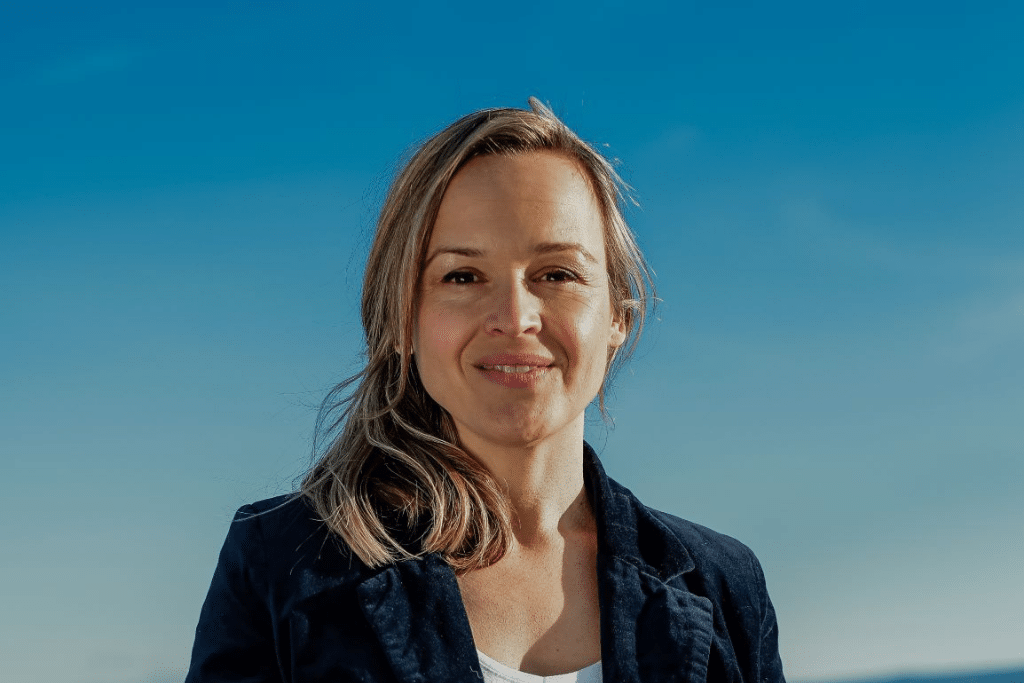
Tanja Polegubic, Australia/Croatia, CEO of Saltwater Nomads, which developed and delivered the DNIR concept, also had some thoughts:
What was your role?
I developed the overarching concept and project managed its delivery from start to finish, in close consultation with the program partners. The delivery included devising the competition, curating the group and forming an expert program team. Also, ensuring inclusivity, enjoyment and mutual benefit for the program participants. I was the one posting all information on Discord, if anyone asked. And ask they did. ;)
What were your main takeaways?
Every destination has something which defines it, with some stronger than others. This was a bold yet confident move by the city, as it had a reputation which made this effort seem quite a feat. It showed me Dubrovnik can continue to lead in Croatia, and become a premium destination for this growing niche, ensuring mid and long-term stays. This is only possible with the ongoing support by the city’s leaders. The quality of the applicants, and ultimately the selected DN-I-Rs demonstrated to me, before we even began, this was going to be a remarkable and intense four weeks - with dedication from all who were involved.
The bonds formed between DN-I-Rs, a group of strangers who now have a memorable, shared and history-making experience was a rewarding thing to witness. By creating a positive environment, the best of everyone could emerge. I am confident the input from all involved will serve as the foundations for success, as long as it is a strategic approach. Curation is key; the right environment and people produce the best results. Many of the DNIRs and team have met up again, including competing in the World Championships in Olive Picking on Postira, Brac.
What do you expect to have the most impact / other insight into the findings?
What I am most impressed about with this program is the reach. Dubrovnik is now synonymous with digital nomadism. Over the last 12 months we see it associated with digital nomads in the Washington Post, Fast Company and most recently the Times (UK).
Along with “getting on the map”, the city now also has a plan (roadmap). This is remarkable.
The biggest impact in the immediate future will be the notion of month-long stays being more commonplace and readily available. I consider this will bring big changes to the city, particularly in the Autumn/Winter period. Following this, working with the markets that gravitated toward the program. There are several very strong initiatives proposed in the roadmap, and I am confident, when implemented, they will ensure the long-term success of the Dubrovnik Digital Nomads-in-Residence Program.
I know I am committed to this journey as it will realise its potential, especially with ‘1 month stay’ remote professionals (my prediction). I am also incredibly grateful for the opportunity, and to all involved - especially Anna, Jenni and Erin who are featured in this interview.
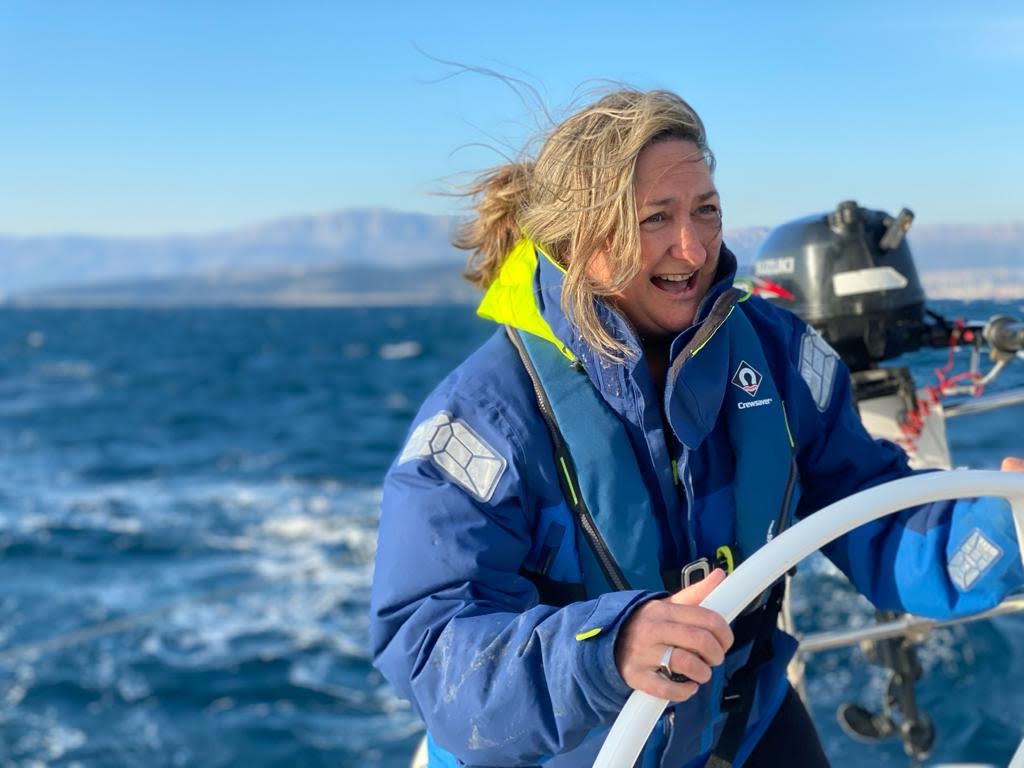
You can download the DNIR case study here.
Read more in Beyond the Walls: DN-i-R Presents Sustainable Dubrovnik Tourism Direction.
For more news and features about digital nomads in Croatia, follow the dedicated TCN section.



